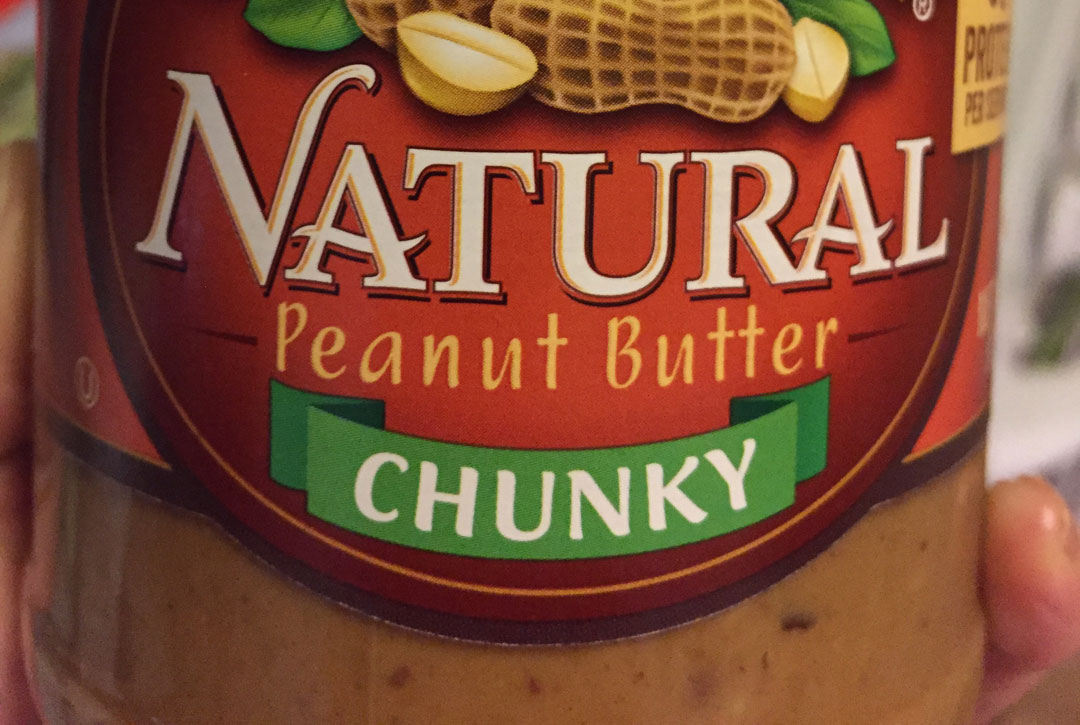
Reducing Food Waste in Foodservice
October 16, 2018 by Doreen Garelick, Dietetic Intern
Our intern Doreen attended a food waste summit for restaurants and compiled these tips to help food service operators redirect…
News Commentary
June 7, 2016

If you walk the aisle of your local grocery store and pick up a bag of chips, a box of cookies, or a pack of trail mix you’ll likely find the package covered in health claims, such as “organic,” “vegan,” “gluten-free,” “GMO-free,” “healthy,” “natural,” and the list goes on and on. While these terms are meant to help consumers pick their food mindfully, the overload of jargon on food labels tends to confuse consumers instead. In fact, the “natural” claim in particular has been the subject of much legal controversy and has opened up the floodgates for a heated debate among food professionals nationwide.
There is quite a long history around trying to define the term “natural.” Back in the 1970’s, the Federal Trade Commission decided that “natural” would be applicable to any food that had “no artificial ingredients and only minimal processing.” However, in the early 80’s the FTC realized just how difficult it was to encompass all foods with that one definition and decided to relinquish the responsibility of defining the term altogether.
The FDA then tried to come up with a definition by asking the consumers to weigh in, but with so many opinions it never came to any conclusions. Instead of having one hard and fast definition, the term would be deemed appropriate on a case by case basis. Inefficient? Yes. Evasive? Even more so.
In fact, if you go to the FDA’s website to find out the meaning of the ‘natural’ label on food, you would find the following explanation:
"From a food science perspective, it is difficult to define a food product that is 'natural' because the food has probably been processed and is no longer the product of the earth. That said, FDA has not developed a definition for use of the term natural or its derivatives. However, the agency has not objected to the use of the term if the food does not contain added color, artificial flavors, or synthetic substances."
Ironically, a term that means so little actually has such a large influence on the way people shop. A major consumer report showed that 41 billion dollars’ worth of food is sold each year with the term ‘natural’ on the label.
It is therefore not surprising that it was only a matter of time until this whole issue came to a head. There have been over 50 class action lawsuits surrounding the issue – most notably the case surrounding Mission tortilla chips. In July 2013, Mission tortilla chips was sued for claiming their chips were natural while using genetically modified corn. The judge then put the case on hold in the hopes that the FDA would weigh in on the matter. But then in January 2014 the FDA responded by saying that it would not change its stance on the matter because it would, for all intents and purposes, be opening a can of worms beyond the scope of their resources. It would be up to the courts alone to come to a conclusion on the matter.
But with so many different cases arguing over the same issue, this response did not suffice. The FDA caved and yet again opened the forum for people to comment on how they think the term natural should be defined. On the one hand, proponents of GMOs being labeled as natural argue that no crop conventionally grown is truly natural since human intervention has led to the production of most of the foods we eat. By that logic, the term natural could be applied to a whole slew of foods that have been tinkered with by human hands. Think: canned fruit, lemonade powder, etc.
Where to draw the line is so difficult, it might even be wise to prohibit the use of the term altogether. However, this would bring up other legal issues having to do with freedom of speech and the infringement of that right.
Unfortunately, there does not seem to be a right or wrong answer. Transparency is becoming a very big issue within the food community, but understanding terminology is a necessary step in that process. When it comes down to it, it does not really matter what the definition becomes so long as the public is made aware of it. That way, they can make a well-educated, empowered choice when making their food purchasing decisions.

October 16, 2018 by Doreen Garelick, Dietetic Intern
Our intern Doreen attended a food waste summit for restaurants and compiled these tips to help food service operators redirect food waste from landfills.
Nutrition 101

Nutrition 101
September 26, 2018 by Doreen Garelick, Dietetic Intern
Ever notice headlines about rapid weightloss? Dietetic Intern Doreen Garelick looks deeper into a recent eye-catching headline to see if there's any truth behind it.
Connect
 Follow us on Twitter
Follow us on Twitter Friend us on Facebook
Friend us on Facebook Follow us on Pinterest
Follow us on Pinterest Follow us on Instagram
Follow us on Instagram Read our Blog
Read our Blog Watch videos on YouTube
Watch videos on YouTube Watch videos on Vimeo
Watch videos on Vimeo Connect with us on Linkedin
Connect with us on Linkedin Find us on Foursquare
Find us on Foursquare
Tweets by @SPEcertifiedBlog Search
Categories
SPE Certified Newsletter
Sign up for news on the latest SPE-certified venues, events and SPE updates.
We will never share your personal information with a third party.